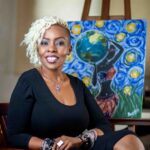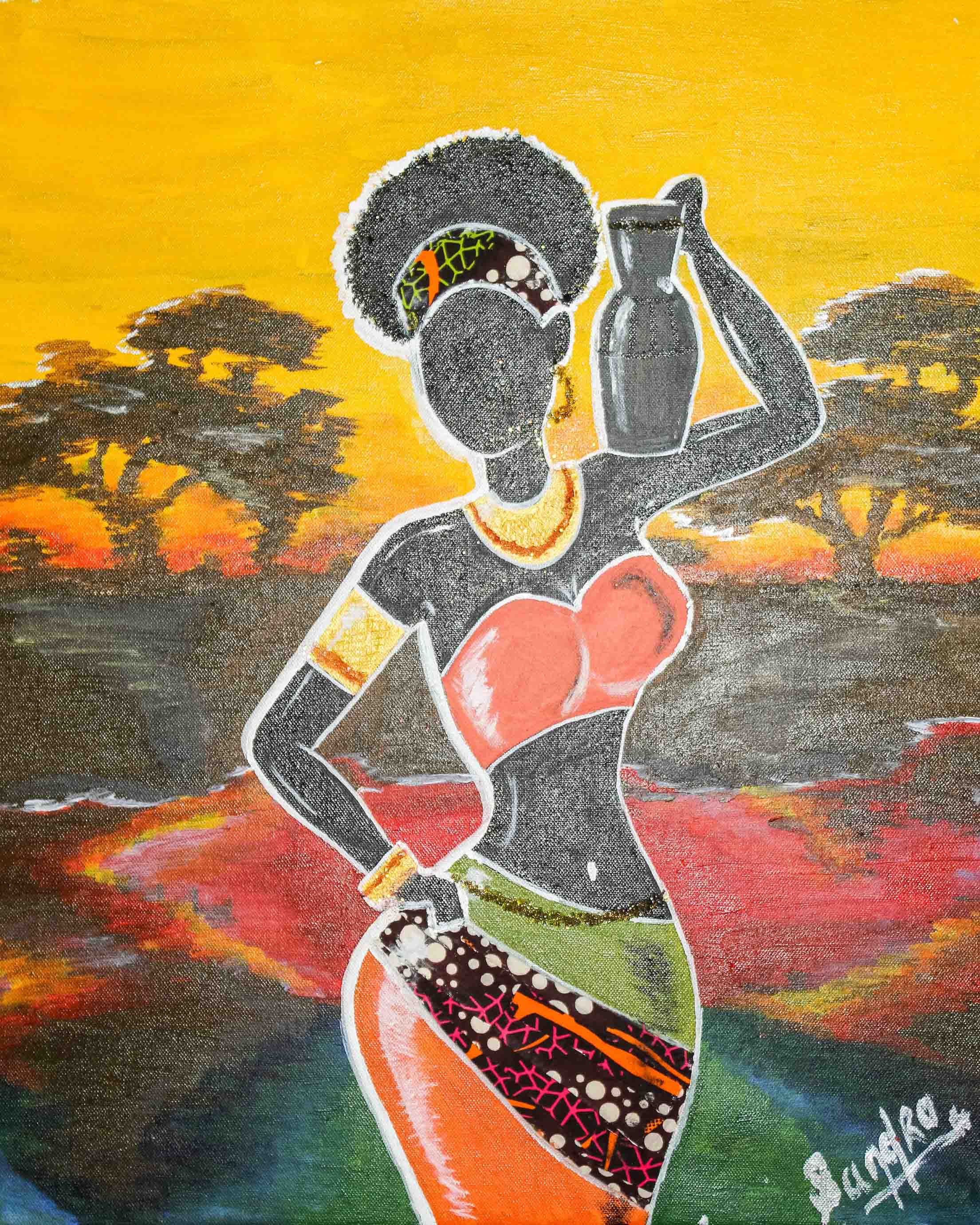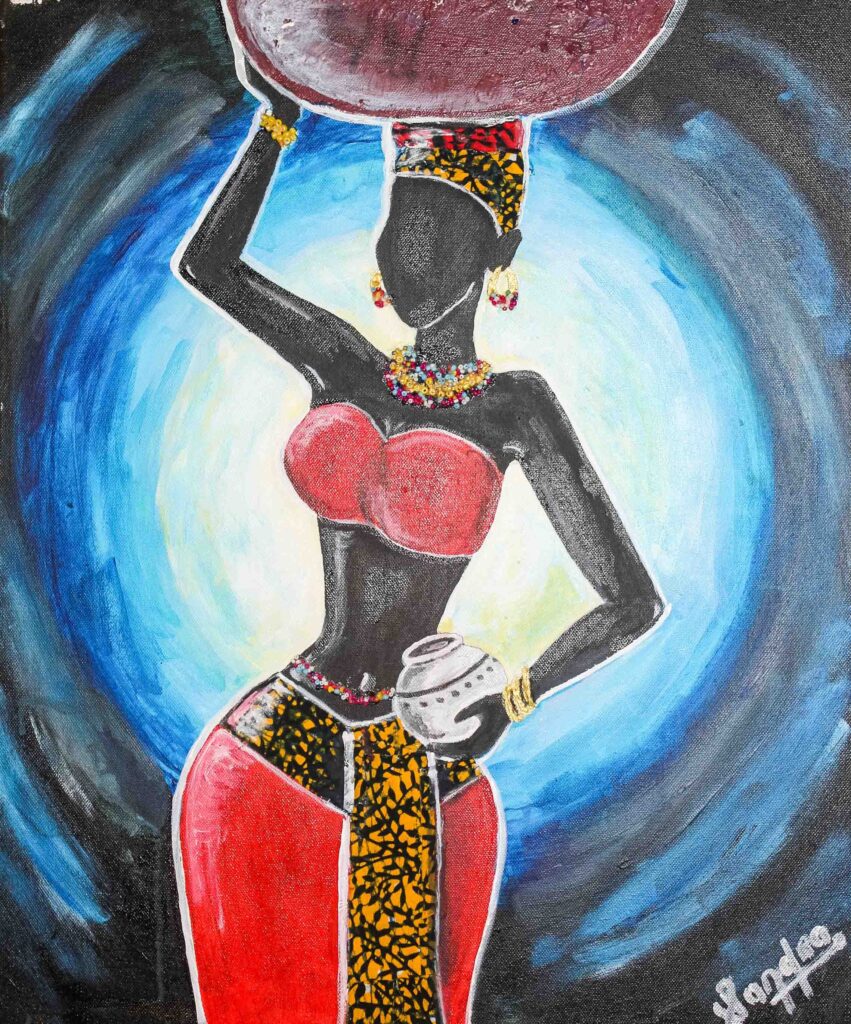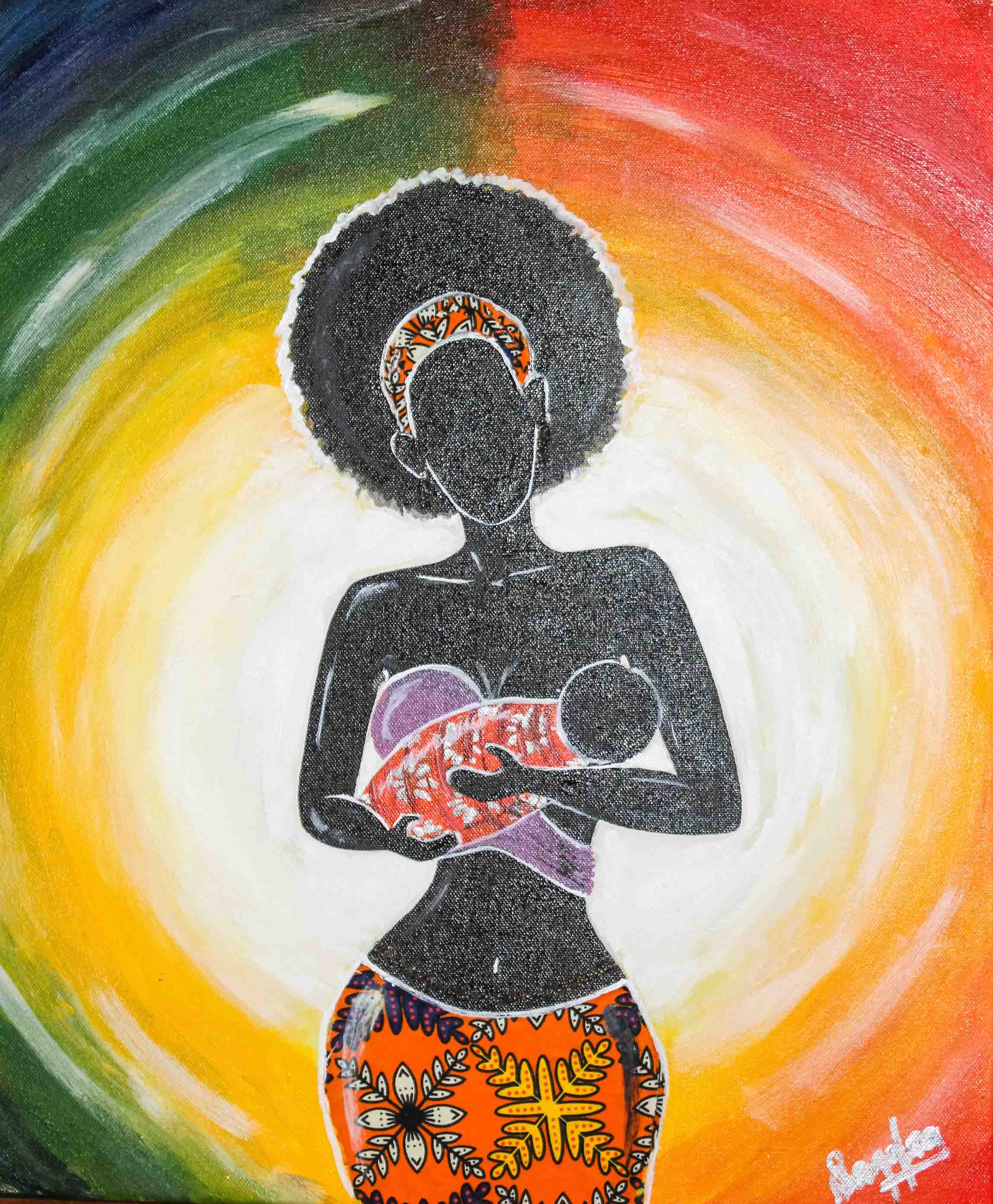AGN: Is there a unique value or trait that is attributable to the place, region or people you are from that manifests in how you operate or even possibly is reflected in your artistic output?
SAM: My usage of kitenge fabrics and beads on my paintings is indicative of our culture.
AGN: Is there a particular person or persons that personally helped set you on the path of realizing your creative ambitions?
SAM: My parents. I was quite a handful as a child. To keep me in one place my mother used to give me pieces of paper. She had realised that if you want Sandra to be quiet, give her paper and crayons.
My mother was studying at that time so some peace was much needed to enable her attend to her studies uninterrupted.
When she ran out of paper, she would give me cardboard boxes from toothpaste, pasta etc packaging. Then she started buying me books. On weekends, when not working my father used to take me to museums. He had actually wanted me to take up fine art as a career. I had to do a whole lot of convincing when I told him that I wanted to study interior architecture design.
AGN: If you hadn’t chosen the path of art and design what else did you feel strongly inclined to do?
SAM: From a young age I have loved nothing but art. That is the only most expressive language that I know. I have never had any firm inclination towards other fields.
Of late though, after I started writing more seriously, I have become really fascinated with the human mind. It is a must for me to get into the mind of each character I write about. Through doing so I have found myself becoming more and more interested in how the mind works,
AGN: What can we expect from you in future?
SAM: Apart from striving to work more with local skilled individuals in order to provide them with income stability, I really want to try my hand at film making. I would like to convert one or two of my short stories into film.




